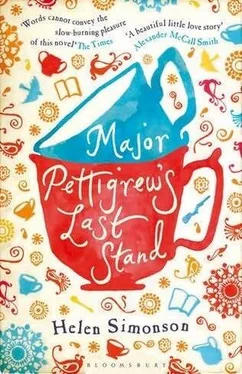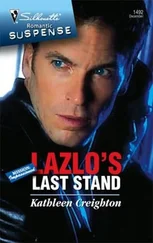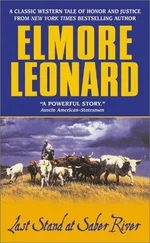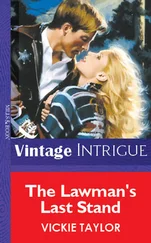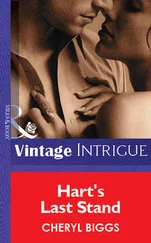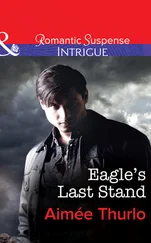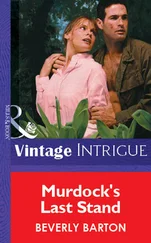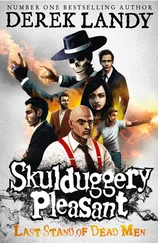“Kipling,” she replied. “It’s a children’s book, as the librarian took pains to inform me, but the stories are set in this area.” She showed him a copy of Puck of Pook’s Hill , which the Major had read many times. “I only knew his Indian books, like Kim.”
“I used to consider myself a bit of a Kipling enthusiast,” said the Major. “I’m afraid he’s rather an unfashionable choice these days, isn’t he?”
“You mean not popular among us, the angry former natives?” she asked with an arch of one eyebrow.
“No, of course not…” said the Major, not feeling equipped to respond to such a direct remark. His brain churned. For a moment he thought he saw Kipling, in a brown suit and bushy mustache, turning inland at the end of the promenade. He squinted ahead and prayed the conversation might wither from inattention.
“I did give him up for many decades,” she said. “He seemed such a part of those who refuse to reconsider what the Empire meant. But as I get older, I find myself insisting on my right to be philosophically sloppy. It’s so hard to maintain that rigor of youth, isn’t it?”
“I applaud your logic,” said the Major, swallowing any urge to defend the Empire his father had proudly served. “Personally, I have no patience with all this analyzing of writers’ politics. The man wrote some thirty-five books-let them analyze the prose.”
“Besides, it will drive my nephew crazy just to have him in the house,” Mrs. Ali said with a slight smile.
The Major was not sure whether to ask more about the nephew. He was extremely curious, but it did not seem his place to enquire directly. His knowledge about the families and lives of his village friends was acquired in bits and pieces. The information was strung like beads out of casual remarks, and he often lost the earlier information as more was added, so that he never acquired a complete picture. He knew, for example, that Alma and Alec Shaw had a daughter in South Africa, but he could never remember whether the husband was a plastic surgeon in Johannesburg or a plastics importer in Cape Town. He knew that the daughter had not been home since before Nancy’s death, but this information came with no explanation; it only resonated with an unspoken hurt.
“Do you have other nephews and nieces?” he said. He worried that even this vague politeness seemed to echo with questions about why she had no children, and to suggest rudely that she must of course come from a large family.
“There is only the one nephew. His parents, my husband’s brother and his wife, have three daughters and six granddaughters.”
“Ah, so your nephew must be their golden boy?” said the Major.
“He was my golden boy, too, when he was little. I’m afraid that Ahmed and I spoiled him terribly.” She hugged her book a little tighter to her chest and sighed. “We were not blessed with children of our own, and Abdul Wahid was the very image of my husband when he was small. He was a very smart boy, too, and sensitive. I thought he would be a poet one day.”
“A poet?” said the Major. He tried to picture the angry young man writing verse.
“My brother-in-law put a stop to such nonsense once Abdul Wahid was old enough to help in one of their shops. I suppose I was naïve. I wanted so much to share with him the world of books and of ideas and to pass on to him what I was given.”
“A noble impulse,” said the Major. “But I taught English at a boarding school after the army and I can tell you it’s pretty much a lost cause, getting boys over ten to read. Most of them don’t own a single book, you know.”
“I cannot imagine,” she said. “I was raised in a library of a thousand books.”
“Really?” He did not mean to sound so doubtful, but he had never heard of grocers owning large libraries.
“My father was an academic,” she said. “He came after Partition to teach applied mathematics. My mother always said she was allowed to bring two cooking pots and a picture of her parents. All the other trunks contained books. It was very important to my father that he try to read everything.”
“Everything?”
“Yes, literature, philosophy, science-a romantic quest, of course, but he did manage to read an astonishing amount.”
“I try to manage a book a week or thereabouts,” said the Major. He was quite proud of his small collection, mostly leather editions picked up on his trips to London from the one or two good book dealers who were still in business around Charing Cross Road. “But I must confess that these days I spend most of my time rereading old favorites-Kipling, Johnson; there’s nothing to compare with the greats.”
“I can’t believe you admire Samuel Johnson, Major,” she said, laughing. “He seems to have been sorely lacking in the personal grooming department and he was always so rude to that poor Boswell.”
“Unfortunately, there is often an inverse correlation between genius and personal hygiene,” said the Major. “We would be sorely lacking if we threw out the greats with the bathwater of social niceties.”
“If only they would take a bath once in a while,” she said. “You are right, of course, but I tell myself that it does not matter what one reads-favorite authors, particular themes-as long as we read something. It is not even important to own the books.” She stroked the library book’s yellowing plastic sleeve with a look that seemed sad.
“But your father’s library?” he asked.
“Gone. When he died, my uncles came from Pakistan to settle the estate. One day I came home from school and my mother and an aunt were washing all the empty shelves. My uncles had sold them by the foot. There was an odor of smoke in the air and when I ran to the window…” She paused and took a slow breath.
Memories were like tomb paintings, thought the Major, the colors still vivid no matter how many layers of mud and sand time deposited. Scrape at them and they come up all red and blazing. She looked at him, her chin raised. “I can’t tell you the paralyzing feeling, the shame of watching my uncles burning paperbacks in the garden incinerator. I cried out to my mother to stop them, but she just bent her head and went on pouring soapy water onto the wood.” Mrs. Ali stopped and turned to look out over the sea. The waves flopped dirty foam onto the expanse of quilted brown sand that signaled low tide. The Major breathed in the sharp tang of stranded seaweed and wondered whether he should pat her on the back.
“I’m so sorry,” he said.
“Oh, I can’t believe I told you this,” she said, turning back, her hand rubbing a corner of her eye. “I apologize. I’m getting to be such a silly old woman these days.”
“My dear Mrs. Ali, I would hardly refer to you as old,” he said. “You are in what I would call the very prime flowering of mature womanhood.” It was a little grandiose but he hoped to surprise a blush. Instead she laughed out loud at him.
“I have never heard anyone try to trowel such a thick layer of flattery on the wrinkles and fat deposits of advanced middle age, Major,” she said. “I am fifty-eight years old and I think I have slipped beyond flowering. I can only hope now to dry out into one of those everlasting bouquets.”
“Well, I have ten years on you,” he said. “I suppose that makes me a real fossil.”
She laughed again, and the Major felt that there was no more important and fulfilling work than to make Mrs. Ali laugh. His own troubles seemed to recede as their steps took them beyond the ice cream stalls and ticket booths of the pier. Here they navigated a newly installed series of curves in the promenade. The Major withheld his usual diatribe against the stupidity of young architects who feel oppressed by the straight line. Today he felt like waltzing.
Читать дальше
